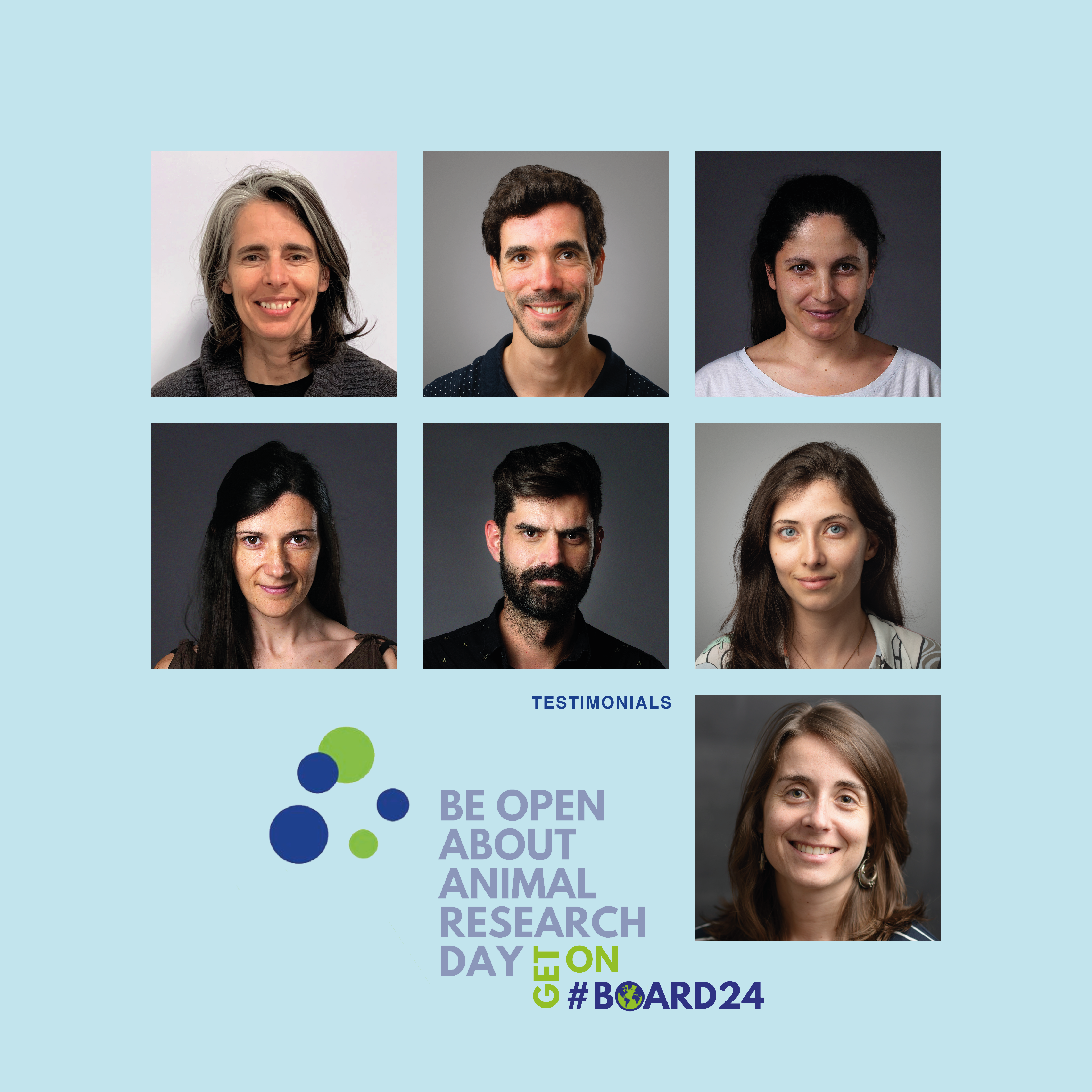“When I explain to my friends and family the rigorous regulations in place to ensure ethical treatment of experimental animals, they seem surprised.
It is important that people know that researchers that use animals are obliged to have appropriate qualifications and training. That scientific projects are evaluated to ensure that the use of animals is needed, beneficial and that no unnecessary harm is inflicted. And that the highest standards of housing conditions must be provided by the facilities where animals are housed.
I believe this awareness fosters trust in the community and gives a sense that research involving animals is conducted responsibly and with respect for animal well-being.”
Rute Marques
Animal Welfare Officer
“When animal research-related misconceptions hinder biomedical advances and contribute to compassion fatigue in animal researchers/technicians, being on #Board24 with transparency is a necessity!
At the 2023 Champalimaud Foundation’s European Night of the Researchers, I co-organised an event, where the general public could communicate with animal researchers/technicians, to demystify animal use in science. Such events and those with larger scope should be encouraged without reservations.
As an animal technician, I fully support #Board24.”
Rodolfo Águas
Rodent Colony Manager
"When I am asked about my occupation, I am very proud to say that I am a Veterinarian. The questions that follow are usually related to companion animals clinics. Stating that I am responsible for laboratory animals (rodents) health and welfare and that I am really passionate about it, leaves people very puzzled. Although, when I explain that without animal models many Medicine advances would not have been possible, they do understand my choice.
Raising awareness that laboratory animals do not suffer unnecessary harm and are under constant veterinarian supervision is of utmost importance."
Catarina Carvalho
Designated Veterinarian
“Working with model fish, I often get reactions of surprise regarding the need for the same level of care as given to a mammalian model. When I teach, from 3rd grade to adults, I always highlight that every animal deserves the same respect. It's because I feel compassion that I ensure laboratory animals are respected, receive proper care and husbandry. All procedures are part of projects meticulously evaluated by animal welfare committees and national competent authorities. Researchers must justify the necessity of each procedure and why a specific number of animals is required.“
Joana Monteiro
Fish Facility Manager
“Working everyday in a lab using animals does not mean that I don’t care about animal welfare or that I am insensitive to the questions that are ethically posed. It is actually the opposite. Along with the EU law that implements clear standards in experimentation using animals, there is a constant debate among scientists, technicians, veterinarians and lawmakers in discussing the best conducts in favor of animal welfare in scientific experiments. Moreover, animal welfare and the ethical questions associated with it are the main concerns when introducing a student to experimentation using animal models.
On the other side, I believe that the most frequently asked questions among the general public are “Why do you still need animals in research? Can’t we use computers to simulate those experiments?”. The basis of these questions likely arises from a misapprehension about what we know about cells, tissues or physiology, let alone disease. Unfortunately, we are far from being able to simulate the biology of any animal. Yet, we can use computers to better guide our experiments and minimize the use of animals in experiments in a world full of unanswered questions.”
Daniel Nunes
Neuroscientist
“As animal research still plays a crucial role in scientific advancement, I believe transparency is needed to break misconceptions, while also embracing the discoveries made, the limitations we find and acknowledging the areas where we can still improve.
When speaking to people about research animals, it is important to say how every animal is accounted for and followed, and just how deeply the people that work with them care for them. I am honoured to be part of a community that prioritizes animal welfare and constantly seeks to enhance their lives. Let’s stand up for transparency, go #BOARD24!”
Sara Oliveira
Rodent Welfare Monitor Technician
“Before becoming a science communicator, I was a neuroscientist for 12 years, during which I worked with in vitro (stem cells) models and also with mice. I think this experience inevitably shapes the way I communicate about animal research. Being aware of all the training that a researcher has to have to be able to even start working with animals, all the guidelines and procedures that are taken, all the respect and responsibility that is placed on each animal experiment is something that I try my best to apply when, as a communicator, I share with society the studies being developed by the researchers with whom my team works.”
Catarina Ramos
Head of Communications, Events & Outreach

